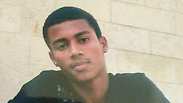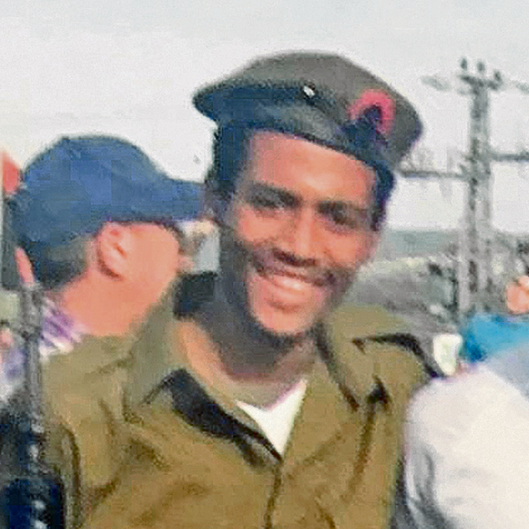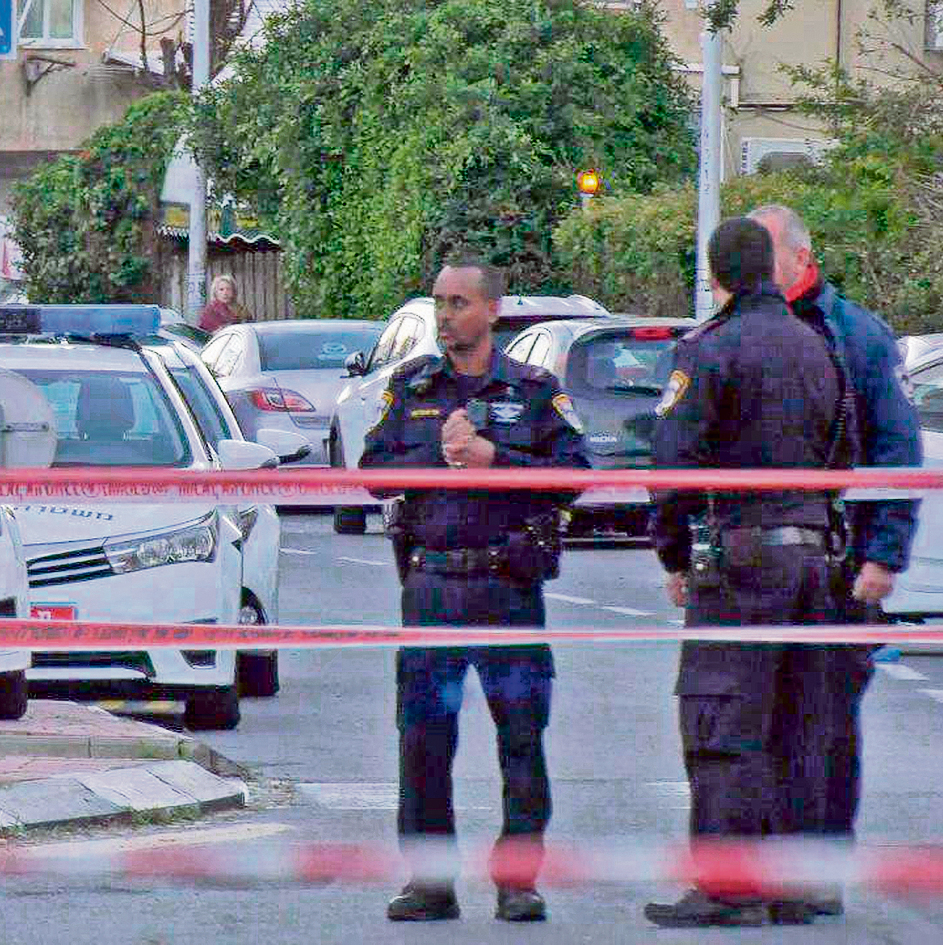
It was 3.30 pm on Friday afternoon, on Balfour Street in the center of the coastal town of Bat Yam, near Tel Aviv. The family of 24-year-old Yehuda Biadga contacted the emergency services. They reported that Biadga, who was released from IDF service after six months due to trauma, had run into the stairwell of their apartment block, armed with a knife, after he went wild in the apartment. A further report to the police said that a young man in the street was waving a knife.
Two police officers from the Tel Aviv disctrict were dispatched to the scene. One of the policemen, who was equipped with a taser, got off his scooter and began looking for the young man, while his partner continued to ride around the area. When he reached the intersection of Jabotinsky and Herzl streets, a few hundred meters from the young man's house, he spotted him. The police say the officer called to Biadga to drop the knife. The policeman claims that the young man continued to run toward him with the knife and that he felt that his life was in danger. He fired two bullets into the center of Biadga's body. Eyewitnesses reported that during the shooting, there were several meters' distance between the two. Biadga died soon after in hospital.
Police sources said that the policeman followed the rules of engagement and fired at center of the suspect's body. "He had no choice; he felt that if he did not shoot, he would have been stabbed to death," the sources said. "It is impossible to understand what a person goes through in such a situation, and we certainly should not judge him, because he defended his life and the welfare of the public."
The police spokesman said: "We received a report of a young man carrying a knife and acting out of control, and there was genuine concern for the safety of passers-by. One of the police officers identified the suspect carrying a large kitchen knife. The officer called for him to stop, but he continued to approach with the knife in his hand. The police officer shot at the suspect because he believed there was a concrete and immediate danger to his life, and in no way because of the suspect's ethnic origin."
The policeman's attorney, Sagi Blumenfeld, said: "Opening fire was the last resort, and due to the immediate danger to his life. He acted lawfully."
Biadga's family strongly rejects these explanations, and accusing the police officer of having "an easy hand on the trigger."
"It's murder," says Biadga's aunt, Zehava Adina. "Just because he's Ethiopian, a policeman gets off his motorcycle and shoots him. What is that if not murder? Why does only this happen in our community? We did not come to Israel for our children to be abused and murdered."
One of Biadga's two younger brothers, David, accused the police of having looser terms of engagement for his sibling than for terror suspects. "When a terrorist goes to carry out a terror attack, they say 'don't shoot', and if they do shoot, then it's the legs, but a civilian gets shot in the upper body. It's not normal. Yehuda was a totally normative person. He excelled at his studies, studied at yeshiva and was God-fearing."
Hagos Ubo, Biadga's brother-in-law, who first reported the incident to the police, said he had asked the officers not to shoot him.
"On the street he was no longer a threat to anyone and was not running wild. I was with the police on the line and I asked them not to shoot him. I don’t believe that the policeman was in danger, and if he was, why didn't he shoot in the air? Why immediately shoot to kill? He was not a well man. They just shot him in the head," he says. "If Yehuda had been a white man, they would have thought twice before they shot and killed him in cold blood just because he was Ethiopian. Yehuda was a little sick and he had a problem, but he took pills and it stopped."
Ubo, who has been a volunteer with the police for four years, says the tragedy had made him rethink his connection to the force.
"That's it; I'm throwing away my uniform," he says. "How long are they going to keep treating the Ethiopian community like this?"
Biadga's funeral was to take place on Sunday. Police were preparing for the possibility of demonstrations by members of the Ethiopian community, who were set to protest both his death and previous incidents alleged police brutality.


















